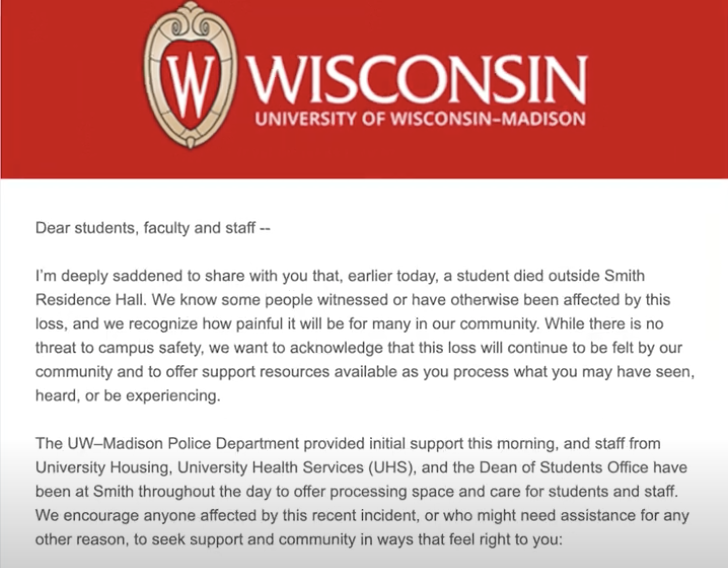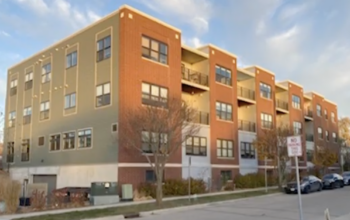Students and faculty on the UW-Madison campus are hoping to spread a positive message to those struggling with their mental health following the death of a student outside of Smith Hall in March.
A memorial created for the student outside the residence hall was decorated with flowers and candles. The memorial not only honors the life of the student who passed away, but serves to provide support to other students on campus through uplifting chalk drawings.
Handwritten chalk notes advocating for mental health support were found all over campus, including classrooms and other dorm buildings.
“This event has shown us how strong we are when we come together,” said Katherine Zimmerman, president of the UW-Madison chapter of the National Alliance on Mental Illness. “When we support one another, and when we all have an end goal in mind which is being able to have better mental health as students.”
But even after those chalk drawings wash away, Ellen Marks, associate director of clinical services at University Mental Health Services, says they provide a wide range of services to support students, including in-person and telehealth counseling options in addition to a crisis hotline that is operated 24/7.
“If you’re struggling, tell someone,” Marks said. “Whether that’s someone at (University Health Services), or someone else in your life, telling someone and talking about what’s going on is really important.”
Zimmerman said making the first steps to receive mental health assistance are often the most difficult for people who are struggling with poor mental health.
“I think that students, especially first-year students, are prone to think that they’re alone because they come to this school and there’s so many people, yet you can walk into a lecture hall with hundreds of students and still feel alone,” Zimmerman said.
Often Marks has noticed students are apprehensive to receive assistance because they feel that their problems may be too small.
“We all have unique struggles and unique concerns in our lives, and we are all deserving of support,” Marks said.
A comprehensive list of mental health resources can be found here. The University Health Services 24/7 crisis hotline is available at 608-265-5600.





